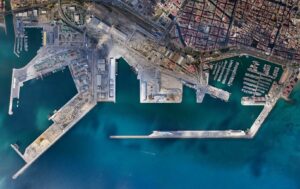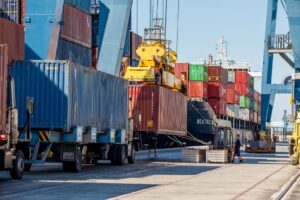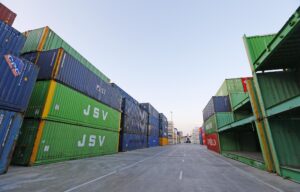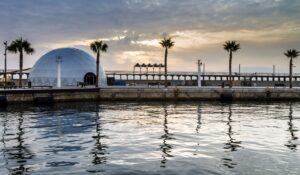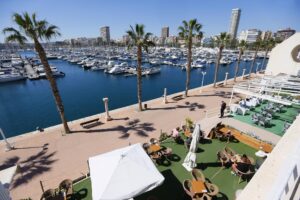-
Port Authority
-
Port Authority
Dependent on State Ports, it is the public body in charge of managing one of the 46 Spanish ports of general interest: the port of Alicante.
-
Port Authority
-
Port Community
-
Port Community
A comprehensive vision is essential to improve productivity and connectivity, the Port Community integrates all participants in logistics and business operations
-
Port Community
-
Deal
-
Deal
The port is essential in the logistical gear of the province, and of the state economy. We are always connected to offer you solutions.
-
Deal
-
Sustainable innovation
-
Sustainable innovation
The port is a space for open innovation, learning development, collaborative work and a cooking workshop
-
Sustainable innovation
-
Environment
-
Environment
One of the strategic priorities of the Port Authority is caring for the environment and optimizing port activities focused on sustainability
-
Environment
-
City port
-
City port
Alicante, a seafaring city, has grown through the centuries strengthened by its port. Its climate, the sun, places open to the city, to enjoy them, to walk them, to live them.
-
City port
Port Authority Presentation
The Port of Alicante, the main logistics platform of Alicante province, faces the future with the security afforded to it by being an essential instrument for the relaunch of Alicante’s economy in the looming new global order.
The Port of Alicante’s potential is based on its geographic location, since it covers a service area where municipalities as important as Alicante, Elche, Murcia and Albacete converge, and also makes inroads towards Madrid through the industrial zones of the river Vinalopó. The strength of this area’s business sector lies in an optimal transport infrastructure: port, motorways, roads and airport, which increases its export capacity and commercial tradition.
But Alicante Port Authority’s commitment is not only focused on the development and management of logistical infrastructures, but is also committed to public, social and economic institutions in order to introduce the necessary strategic changes and thereby encourage new companies to set up in its area of service.
The definition and development of a new port model is an ongoing goal whose execution is in line with the logistics strategy of the Valencian Community. The adaptation of existing infrastructures and the implementation of the new wharf will contribute to greater commercial specialisation.
- Goals
- Functions
- Execution, authorisation and control of sea and land operations related to port traffic and services.
- Laying out of the port’s service zone and of port uses.
- Planning, project, construction, conservation and exploitation of the port’s works and services, and of maritime signals.
- Management of the public port area and of maritime signals.
- Optimisation of the economic management and profitability of the port’s assets and resources.
- Promotion of industrial and commercial activities related to sea or port traffic.
- Coordination of operations of different transport modalities in the port area.
- The provision of general services, management and control of port services to achieve their execution in optimal conditions of efficacy, economy, productivity and safety, regardless of the competence of other bodies.
- The laying out of the port’s service zone and of port uses.
- The planning, construction, conservation and exploitation of the infrastructures necessary for the execution of the activity.
- The management of the public port area and of maritime signals.
- The optimisation of the economic management and the profitability of its assets.
- The promotion of industrial and commercial activities related to sea or port traffic.
- The coordination of operations of different modes of transport in the port area.
- The laying out and coordination of port traffic, both sea and land.
- The approval of the rates for any commercial services provided, as well as their application and collection.
- The collection of fees from concessions and authorisations granted, overseeing compliance with the established clauses and conditions.
- The development of studies and research, as well as the training of its personnel in matters related to port activity and environmental protection.

